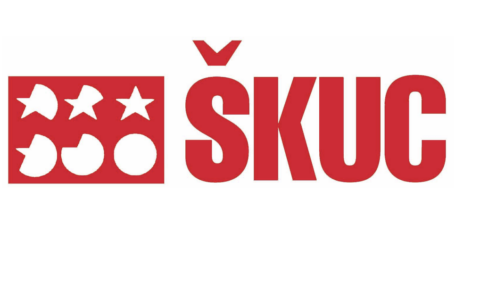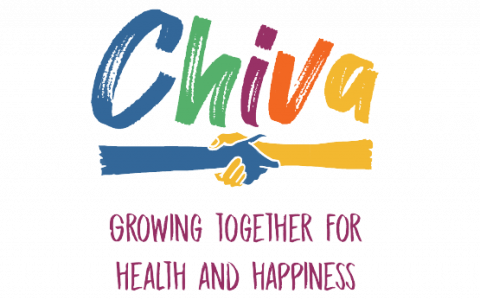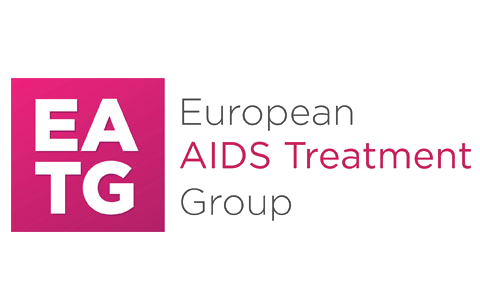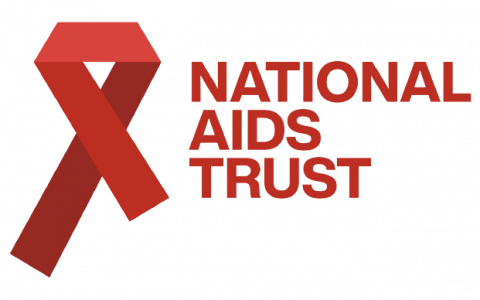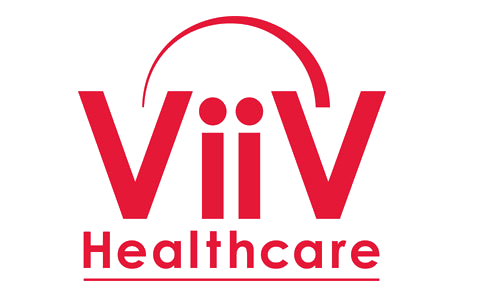Case Study
Romania – Unified U=U Education: Transforming HIV Care at Baylor Foundation’s Constanta Center of Excellence

-
Context
Baylor Foundation Romania is part of Texas Children’s Global Health Network, a partnership between Baylor College of Medicine and Texas Children’s Hospital, headquartered in Houston, Texas. It is the largest care and treatment network based at an academic institution. Texas Children’s Global Health Network provides paediatric and maternal healthcare for vulnerable populations worldwide.
The Clinical Center of Excellence (COE) was founded on April 6, 2001, and the Baylor Black Sea Foundation was legally established in 2004. The COE was created to help the HIV-infected children of Romania in the late ’90s. At the time of its establishment, the center was the largest paediatric clinic in Europe to provide care and treatment for HIV-infected children.
COE has extended its services by employing the HIV/AIDS long-term care experience, reaching out to people living with viral hepatitis, diabetes, and COVID-19. The center is also offering emergency care to fleeing refugees from Ukraine living with HIV, facilitating access to medical care for displaced populations.
The Baylor Black Sea Foundation provides complex services at the Clinical Center of Excellence in Constanţa. It operates two counseling and testing centers and a mobile voluntary testing laboratory in the Dobrogea region. Over the years, Baylor Black Sea Foundation has provided free-of-charge testing and counseling for more than 120,000 people, long-term medical and psychosocial care for over 4,000 patients with HIV and hepatitis, and supported the healthcare system with donations of medicines as well as professional training courses for healthcare professionals.
-
Introduction
Baylor Romania’s project educates people living with HIV/AIDS on the concept of “Undetectable = Untransmittable” (U=U) utilizing a variety of resources, both new and existing.
-
Aims
Baylor Foundation’s U=U initiative leverages a comprehensive array of resources to educate individuals living with HIV/AIDS on the critical concept of “Undetectable = Untransmittable” (U=U).
This program aims to provide consistent, evidence-based counseling sessions for all patients enrolled in care, thereby enhancing patient comprehension of the U=U principle. Through these efforts, the project seeks to foster a deeper understanding of how maintaining an undetectable viral load prevents the transmission of HIV.
-
Methods
Baylor Romania is educating individuals with HIV/AIDS about the U=U concept through a standardized approach. This strategy includes the use of printed materials, specialized counseling techniques, and a brochure adapted in collaboration with NAM UK. To assess comprehension, we are employing the teach-back method, ensuring that the information is effectively understood and retained.
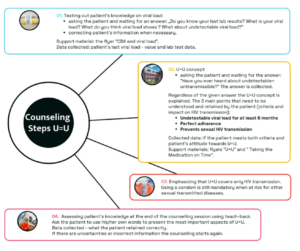
-
Results
Baylor Romania has developed a U=U counseling guide specifically for healthcare professionals at our clinic. This guide outlines four straightforward steps, complete with sample questions and a compilation of support materials and techniques tailored for each phase.
All staff members involved in the project, including medical and psychosocial personnel, have undergone comprehensive training. We regularly monitor the implementation of this guide to ensure consistent and effective usage throughout the project.
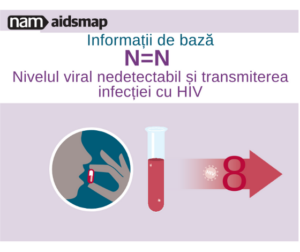
-
Recommendations
Creating standardized content for activity implementation is a valuable strategy to ensure consistency and alleviate stress for all participants. This approach is particularly beneficial in environments with high personnel turnover and overlapping responsibilities among professionals from diverse backgrounds. It is crucial to consider the varying skill levels of those involved and to develop a guide that provides clear examples and objectives for each step.
Standardization is not only applicable to counseling, as in this instance, but also to reporting and data collection. For established activities, the process can begin by identifying variations in implementation among team members. Overall, developing a detailed guide promotes the delivery of standardized care and enhances the uniformity of practice.

